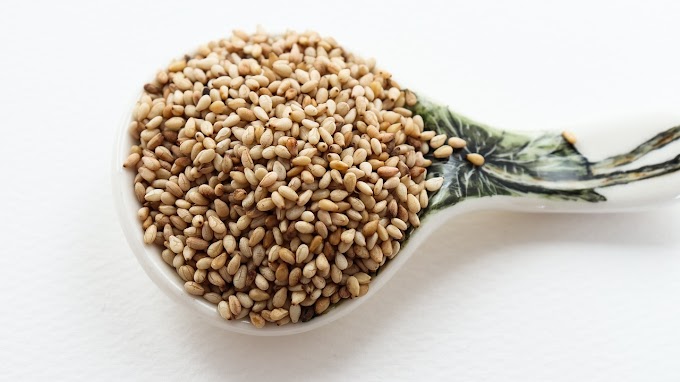Principles of Ayurveda
Ayurveda for a Balanced Life: Physically, Mentally, and Spiritually
In a world dominated by modern medicine, there exists an ancient healing system that has withstood the test of time and continues to be revered for its holistic approach to well-being - Ayurveda. Originating in the Indian subcontinent thousands of years ago, Ayurveda is more than just a medical system; it is a way of life that encompasses physical, mental, and spiritual health. In this blog post, we delve into the fundamental principles of Ayurveda, exploring its origins, philosophy, approach, essential principles, and the root causes of diseases.
Principles of Ayurveda:
Panchamahabhutas - The Five Elements: Ayurveda views the universe and the human body as composed of the same five elements - earth, water, fire, air, and ether. Understanding the interplay of these elements helps maintain balance and harmony within the body.Tridosha - Vata, Pitta, and Kapha: According to Ayurveda, the human body is governed by three doshas - Vata (ether and air), Pitta (fire and water), and Kapha (earth and water). Understanding the balance of these doshas is crucial for maintaining overall well-being.
Agni - The Digestive Fire: Agni represents the digestive fire within the body that is responsible for transforming food into nutrients. A healthy Agni is essential for proper digestion and metabolism.
Dhatu and Malas - Tissues and Waste Products: Ayurveda recognizes seven dhatus (tissues) and three malas (waste products) in the human body. Proper nourishment of the dhatus and efficient elimination of malas are vital for overall well-being.
Srotas - Channels of Circulation: Srotas are the channels through which various substances and energies flow within the body. Keeping these channels clear and unblocked ensures the smooth functioning of the body.
The Origin of Ayurvedic Medicine:
Ayurveda, often referred to as the "Science of Life," traces its roots back to ancient India. Its origins can be found in the Vedas, the sacred texts of Hinduism, dating as far back as 5,000 years. The ancient sages and seers developed this profound system of medicine through centuries of observation, experimentation, and divine insights. Ayurveda's wisdom has been passed down through generations, preserving its traditional knowledge and practices.The Ayurvedic Philosophy:
Ayurveda views the human body as a complex and interconnected system where the balance of energies plays a crucial role in maintaining health. According to Ayurveda, the body is composed of five elements - earth, water, fire, air, and ether (space). These elements combine to create three doshas: Vata, Pitta, and Kapha. Each individual has a unique combination of these doshas, known as their Prakriti, which influences their physical and mental characteristics.The Ayurvedic Approach:
The central principle of Ayurveda lies in the belief that each individual is a unique entity, and there is no one-size-fits-all approach to well-being. Ayurvedic practitioners focus on restoring the balance of the doshas specific to each individual, as imbalance can lead to various ailments. This personalized approach involves a deep understanding of a person's Prakriti and identifying the root cause of any imbalances.The Cause of Disease:
Ayurveda identifies the imbalance of the doshas as the primary cause of illnesses. When any of the three doshas is disturbed or depleted beyond their natural state, it leads to health issues. Factors such as unhealthy lifestyle choices, improper diet, stress, and environmental factors can disturb the doshic balance. Ayurvedic treatments aim to restore balance and alleviate the root cause of the disease rather than just addressing the symptoms.Embracing Ayurveda for Holistic Health:
Ayurveda offers a treasure trove of knowledge and practices that can lead to a balanced and fulfilling life. By understanding one's unique Prakriti and embracing the principles of Ayurveda, individuals can make informed choices regarding their diet, lifestyle, and daily routines to promote health. Ayurvedic treatments, including herbal remedies, massages, and yoga, can promote improved physical and mental well-being.Open the wisdom of Ayurveda and embark on a journey of self-discovery and wellness, balancing your mind, body, and soul. Embrace the timeless principles of Ayurveda to nurture holistic well-being and experience the profound benefits it brings to every aspect of your life.
Ayurveda's Holistic Lifestyle Approach:
In addition to its medical aspects, Ayurveda promotes a holistic lifestyle that emphasizes the importance of daily routines, diet, and mental well-being. It encourages individuals to align their lifestyles with the natural rhythms of the day and the seasons, promoting a balance between work, rest, and recreation. Ayurveda advocates mindful eating, emphasizing the consumption of fresh, seasonal, and locally sourced foods that support one's unique constitution.Furthermore, Ayurveda underscores the significance of mental and emotional well-being, highlighting the importance of practices such as meditation, breathing exercises, and mindfulness to promote inner harmony and reduce stress. By fostering a deep connection between the mind, body, and spirit, Ayurveda aims to create a state of overall well-being and contentment.
Ayurveda and Prevention:
One of Ayurveda's key principles is the emphasis on disease prevention. Ayurvedic practices focus on maintaining the balance of the doshas and promoting overall health to prevent the onset of diseases. By cultivating healthy lifestyle habits and following Ayurvedic guidelines, individuals can bolster their immune systems and enhance their body's natural ability to resist illnesses.Ayurveda encourages the incorporation of daily self-care rituals, known as Dinacharya, and seasonal cleansing practices, known as Ritucharya, to eliminate toxins and maintain optimal health throughout the year. By adopting these preventive measures, individuals can reduce the risk of developing various ailments and lead a life of vitality and wellness.
Ayurveda in Modern Times:
Despite the advancements in modern medicine, Ayurveda continues to gain recognition worldwide for its effectiveness in promoting well-being and treating a wide range of health conditions. Its emphasis on personalized care, natural remedies, and lifestyle modifications has resonated with individuals seeking holistic approaches to health and wellness.
Incorporating Ayurveda Into Your Life:
For those interested in integrating Ayurveda into their daily lives, it is essential to seek guidance from qualified Ayurvedic practitioners who can provide personalized assessments and recommendations based on individual constitutions and health goals. By embracing Ayurveda's principles and practices, individuals can cultivate a lifestyle that nurtures balance, vitality, and inner harmony, ultimately leading to a state of holistic well-being and a deeper connection with oneself and the surrounding world.Embark on a Journey of Wellness:
As you delve into the timeless wisdom of Ayurveda, consider the profound impact it can have on your overall well-being. Explore the principles of Ayurveda, immerse yourself in its holistic lifestyle practices, and discover the transformative power of this ancient healing tradition. Embrace Ayurveda as not just a medical system, but a profound philosophy that can guide you toward a life of balance, harmony, and vitality. Allow Ayurveda to be your companion on the journey to holistic wellness and self-discovery.FAQ's
Is Ayurveda only about herbal treatments?
No, Ayurveda involves a holistic approach to well-being, which includes herbal remedies, dietary guidelines, lifestyle recommendations, yoga, meditation, and other therapies to restore balance and promote health.
Can Ayurveda be combined with modern medicine?
Can Ayurveda be combined with modern medicine?
Yes, Ayurveda can be integrated with modern medicines. However, it is crucial to consult both Ayurvedic and allopathic practitioners to ensure that there are no contraindications between treatments.
How long does it take to see results with Ayurvedic treatments?
How long does it take to see results with Ayurvedic treatments?
The time taken to see results with Ayurvedic treatments varies from person to person and depends on the nature of the condition and the individual's responsiveness to the treatments. Patience and consistency are key when following Ayurvedic practices.
Is Ayurveda suitable for everyone?
Is Ayurveda suitable for everyone?
Ayurveda's personalized approach makes it suitable for individuals of all ages and constitutions. However, it is always advisable to consult a qualified Ayurvedic practitioner, especially if you have any pre-existing health conditions.
Can Ayurveda help with chronic health conditions?
Can Ayurveda help with chronic health conditions?
Ayurveda can help and support many chronic health conditions. While it may not cure all ailments, Ayurvedic treatments can help manage symptoms and improve overall quality of life. Always seek guidance from a trained Ayurvedic professional for chronic health concerns.







